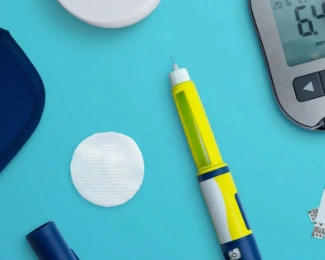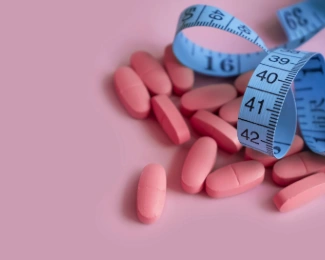What Happens When You Stop Taking GLP-1 Weight Loss Injections?
Brian Chin.webp)
GLP-1 receptor agonist injections—such as Ozempic®, Wegovy®, and Mounjaro™—have quickly become household names in the world of weight management. These medications regulate appetite, slow digestion, and help stabilize blood sugar levels. But what happens when the injections stop? The short answer: most patients experience rapid appetite return, weight regain, and less stable blood sugar control.
How GLP-1 Weight Loss Injections Work
GLP-1 (glucagon-like peptide-1) is a hormone released in the gut after eating. It helps regulate blood sugar by:
- Stimulating insulin secretion when glucose is high.
- Suppressing glucagon (which raises blood sugar).
- Slowing gastric emptying, prolonging fullness.
- Acting on brain centers that control hunger.
GLP-1 medications mimic this hormone but last much longer, creating powerful effects on weight and appetite regulation.
Immediate Effects After Stopping GLP-1 Injections
When treatment stops, the body adjusts quickly.
- Return of Appetite: Hunger and cravings often return within days. Without GLP-1’s effect, most patients feel hungrier and may overeat.
- Blood Sugar Spikes: For patients with type 2 diabetes, glucose levels may rise, causing thirst, frequent urination, fatigue, and blurred vision.
- Digestive Changes: Side effects like nausea or diarrhea usually improve, but appetite rebound outweighs these benefits.
This “rebound effect” explains why many patients regain lost weight soon after stopping injections.
Long-Term Effects of Discontinuation
Research shows that most people regain up to two-thirds of their lost weight within a year of stopping GLP-1 injections. This highlights the biggest issue: while GLP-1s can help jump-start weight loss, they rarely deliver sustainable long-term results.
Other long-term considerations include:
- Cycle of Dependence: Patients often feel trapped, relying on costly injections to keep weight off.
- Healthcare Costs: At $900–$1,500 per month without insurance (or $300–$600 even with coverage), stopping often happens because of financial strain.
- Underlying Habits: Medications don’t address root causes like diet, activity, or metabolic health, so old patterns may return once injections stop.
Why Bariatric Surgery Offers a Lasting Solution
Unlike temporary fixes, bariatric surgery provides permanent changes to the digestive system, which:
- Reduce stomach capacity, leading to natural portion control.
- Alter hunger hormones, helping patients feel full faster.
- Improve or even resolve conditions like type 2 diabetes, high blood pressure, and sleep apnea.
And unlike GLP-1 injections, bariatric surgery is often a one-time investment (with insurance coverage in many cases), not a recurring monthly cost.
At BASS Bariatric Surgery Center, our surgeons specialize in safe, effective procedures that help patients achieve real, lasting weight loss—and freedom from dependence on costly drugs.
If you’re ready to stop relying on temporary fixes and want a permanent solution to weight loss, contact BASS Bariatric Surgery Center today. Our expert surgeons in Walnut Creek and Brentwood, CA, can help you explore your options and take the first step toward a healthier future.
FAQs
Q: Will I gain all my weight back if I stop GLP-1 injections?
A: Most patients regain a significant portion of lost weight—sometimes two-thirds—within 12 months of stopping.
Q: Can I switch from GLP-1 injections to bariatric surgery?
A: Yes. Many patients transition to surgery for a more permanent solution after struggling with cost, side effects, or weight regain.
Q: Are GLP-1 injections a good long-term option?
A: They may work while you’re on them, but high costs and potential side effects make them unsustainable for many. Bariatric surgery addresses root causes and provides lasting results.


